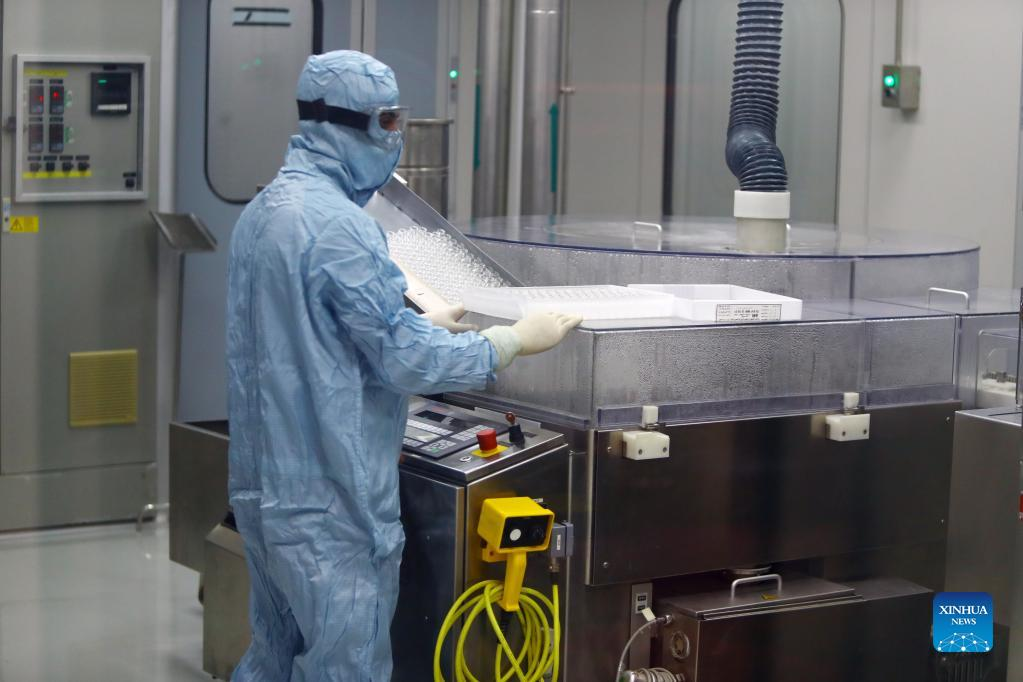
A staff member works on the production line of COVID-19 vaccine at VACSERA factory in Giza, Egypt, Feb. 3, 2022. (Xinhua/Ahmed Gomaa)
by Mahmoud Fouly
CAIRO, Feb. 12 (Xinhua) -- The fully-automated vaccine cold storage facility provided by China's biopharmaceutical company Sinovac will be "a qualitative leap" in Egypt's vaccine preservation technique, said chief of an Egyptian vaccine producer in a recent interview with Xinhua.
In an agreement signed in January, Sinovac will establish and equip a cooling facility at a new factory complex of Egypt's Holding Company for Biological Products and Vaccines (VACSERA) in 6th of October city of Giza province near Egypt's capital Cairo.
"The advantages of the new refrigeration facility is that it is fully-automated and run by high-tech electronic control systems without human intervention," VACSERA's Chairperson Heba Wali told Xinhua.
"The facility is also equipped with automatic loading and unloading docks, so the stored products are automatically loaded and unloaded without any human intervention, which will be a qualitative leap in our cooling systems for vaccine preservation," she pointed out.
Wali noted that the facility will be built on an area of 3,200 square meters, with a storage capacity of 150 million doses of the final product, adding that it is planned to be completed and ready for operation by June 2022.
Sinovac will be responsible for the interior finishing and equipment of the new cold storage facility while the the Egyptian side will be responsible for providing the land, the concrete structure of the building and the necessary licenses, according to the chairperson.
The agreement to establish the cold storage facility came within the framework signed between Sinovac and VACSERA in April 2021. In the framework, the two sides will jointly produce Sinovac COVID-19 vaccines at VACSERA's factory in Agouza, Giza, with a final product carrying the names of both companies.
The two sides celebrated in August last year the production of the first one million doses of Sinovac-VACSERA vaccines.
Wali said VACSERA is about to conclude an agreement with Sinovac regarding full transfer of vaccine manufacturing technology.
"Our production capacity is 320,000 doses per day, and since August 2021 we have produced 30 million doses, most of which have been used in the country's COVID-19 vaccination program," Wali pointed out.
"We currently have raw material to manufacture 15 million doses and their production is planned to be completed in March," she added.
VACSERA currently preserves its vaccines in a cooling facility at its company in Agouza, which is adequate but manually run with 100-percent human intervention.
With its full automation and large capacity, the new cold storage facility to be provided by Sinovac will serve VACSERA's future plans to become a regional center for vaccine production, storage and export in Africa.
She referred to an initiative by Africa Centers for Disease Control and Prevention (CDC) that targets to locally produce 60 percent of the continent's needs of vaccines by 2040.
Established over 100 years ago, state-owned VACSERA is one of the oldest manufacturers of vaccines and sera in Africa and the Middle East.
Since the outbreak of COVID-19, Egypt and China have been cooperating closely in fighting the pandemic through exchanging medical aid and expertise as well as jointly producing its vaccines.
Wali hailed cooperation with the Chinese side as "very positive."
"We started discussions with Sinovac in June 2020 and we found great cooperation from the Chinese side in transferring manufacturing technology to us," VACSERA chief told Xinhua. ■
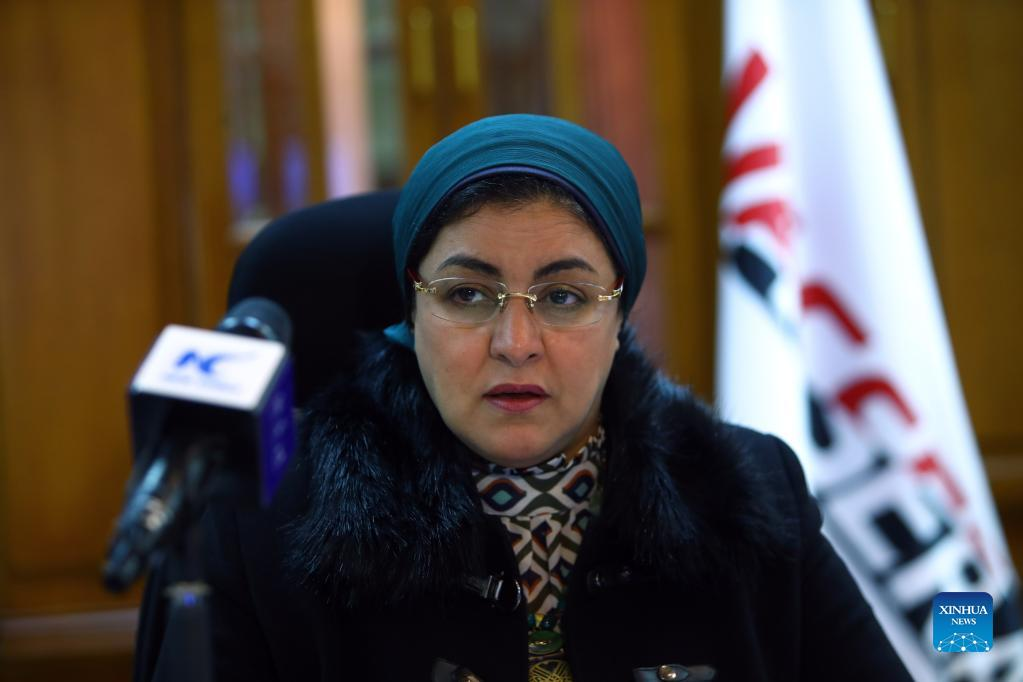
VACSERA's Chairperson Heba Wali reacts in an interview with Xinhua about the COVID-19 vaccine cooperation between Egypt and China in Giza, Egypt, Feb. 3, 2022. (Xinhua/Ahmed Gomaa)
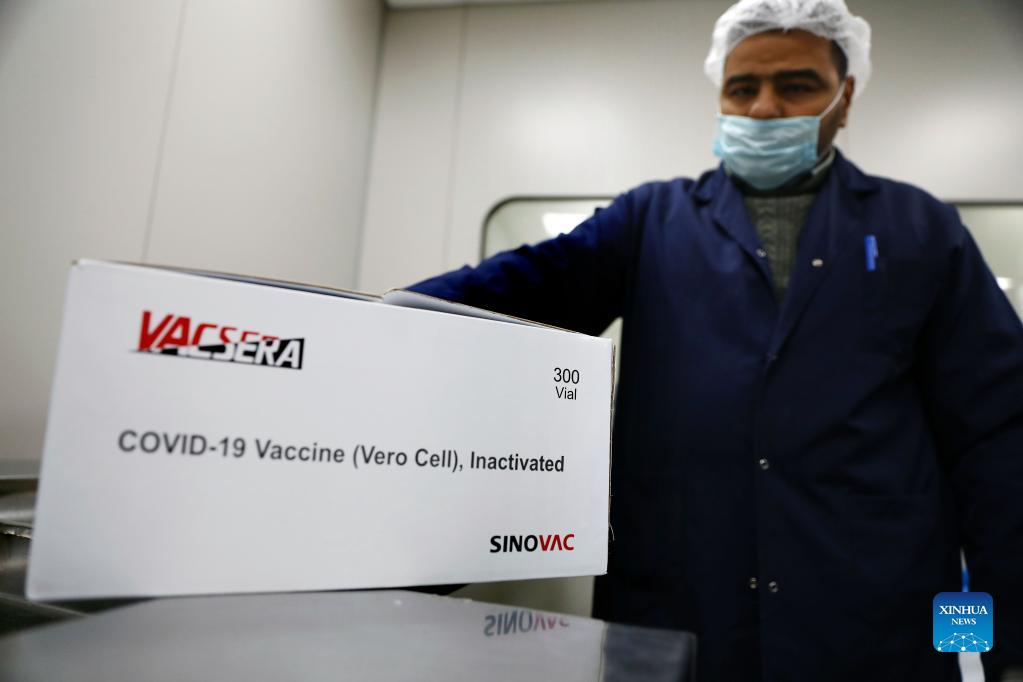
A staff member shows packed COVID-19 vaccines at VACSERA factory in Giza, Egypt, Feb. 3, 2022. (Xinhua/Ahmed Gomaa)
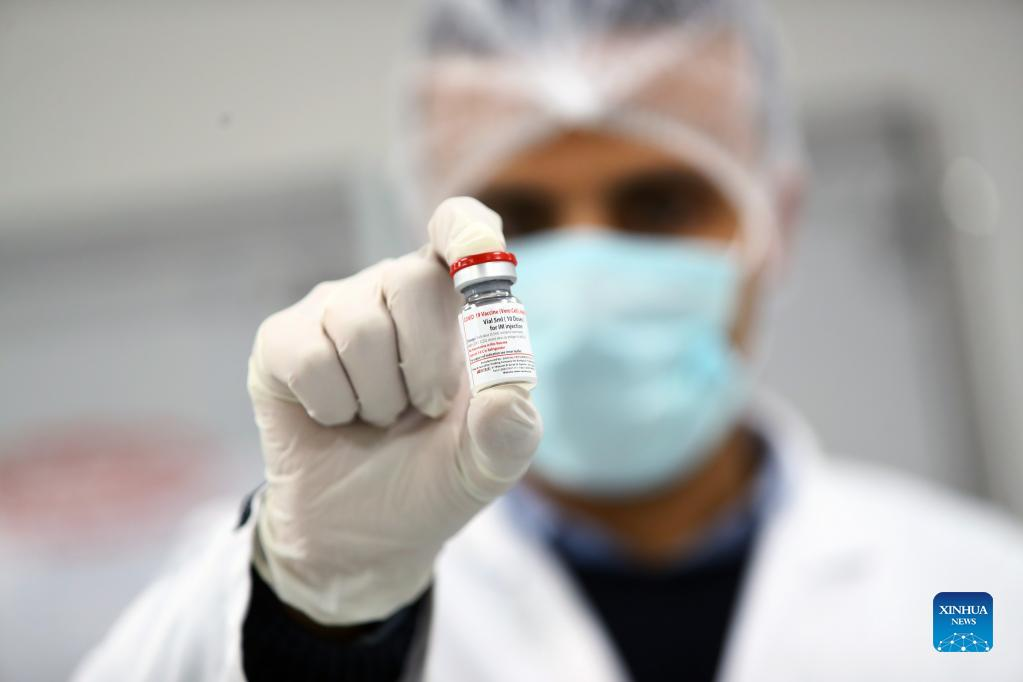
A staff member shows a vial of COVID-19 vaccine at VACSERA factory in Giza, Egypt, Feb. 3, 2022. (Xinhua/Ahmed Gomaa)
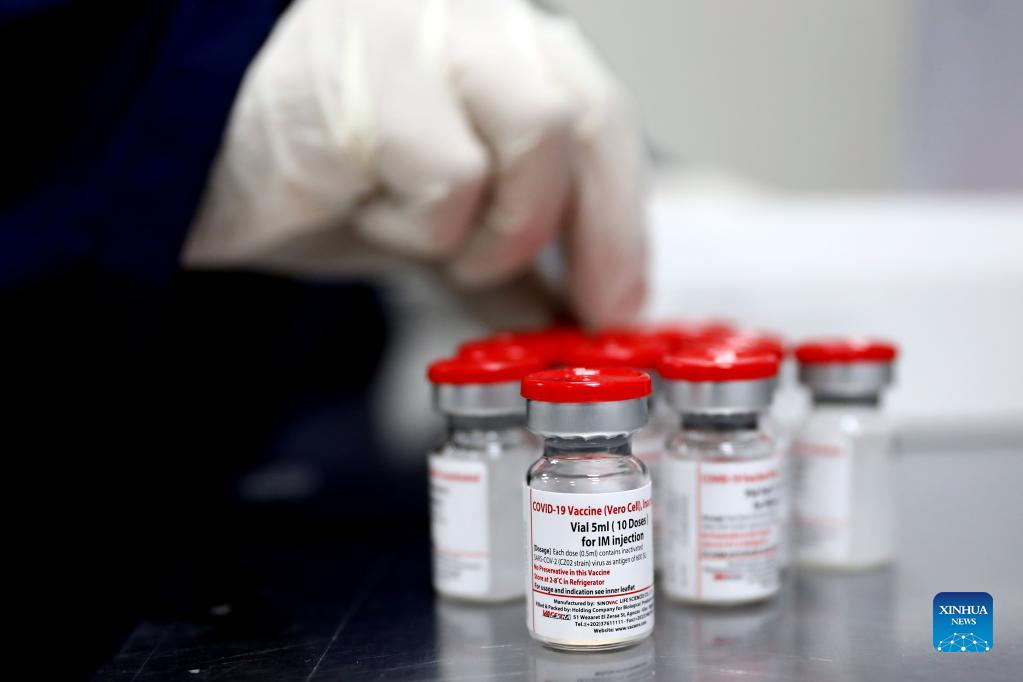
Photo shows vials of COVID-19 vaccine at VACSERA factory in Giza, Egypt, Feb. 3, 2022. (Xinhua/Ahmed Gomaa)



